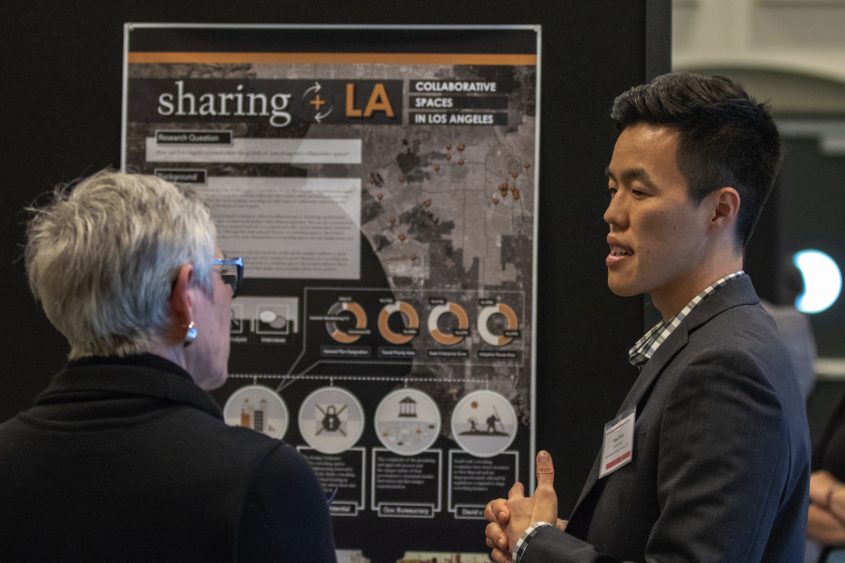
A Showcase for Research by Urban Planning Students The annual Careers, Capstones & Conversations networking event highlights activities that welcome newly admitted students to UCLA Luskin Urban Planning and give them a preview of what the future holds. Public Policy and Social Welfare host their own Welcome Day events.
By Stan Paul
Britta McOmber wants to know “What’s the Dam Problem?” in terms of flood risk in California. Shine Ling wants to know “How Fair is Fair-Share” when it comes to housing law in California. Sabrina Kim asks, “Still No to Transit?” looking at areas in Los Angeles County that do not meet their full transit commuting potential.
Questions like these launched 36 research projects that brought together Master of Urban and Regional Planning (MURP) students with clients to produce research projects that address a specific planning issue. The second-year students, completing their required capstones, showcased their work at the annual Careers, Capstones & Conversations (CCC) networking event held April 5, 2018, at UCLA’s Covel Commons.
The event followed a day of welcoming activities for newly admitted UCLA Luskin Urban Planning students, who had the opportunity to view the projects and interact with current students, as well as faculty and staff.
Newly admitted student Bradley Bounds II said his interest in urban planning is local.
“I want to work on building up my community,” said the Compton resident. “I’m looking more toward open space projects; I’m looking for transportation projects and economic development,” said Bounds, who enthusiastically affirmed his intent to join the new Urban Planning class in fall 2018.
Project clients include governmental organizations, local agencies and cities, as well as private planning and design firms and nonprofit organizations concerned with regional, state and national urban issues.
Video highlights of the students practicing for CCC. [full size]
In addition to engaging titles, the projects — produced individually or in teams — include solid research and data that has been analyzed and put into context by the students. Topics included transportation, housing and social justice issues, including foster care in the region and environmental, resource conservation and energy challenges. At CCC, the students pitch and support their approaches via posters that frame the issues and their proposed solutions.
UCLA Luskin Urban Planning faculty, alumni and Luskin Senior Fellows were on hand to evaluate the projects displayed in Covel’s Grand Horizon Room.
McOmber, who has studied coastal cities and flood risk resulting from rising sea levels, as well as designated flood plains, said her project was inspired by last year’s Oroville Dam overflow incident in Northern California.
“There are quite a number of dams and large reservoirs in L.A. County,” said McOmber, explaining that, from the perspective of Oroville’s near disaster, the state faces a broader problem of dam and water storage infrastructure that is aging, underfinanced and sometimes not well-maintained.
“I noticed that there really wasn’t any information on dam flood zones, so I thought that was an area that’s lacking in the academic field and also very relevant, not only for California, but I think more broadly for the country,” she said.
Her project also looked at who may be impacted based on factors such as income and education. For example, McOmber asked whether socially vulnerable households are more likely to live within dam flood zones in California. She found that almost 50 percent of households in these areas are Hispanic or Latino.
Presentation is an important aspect of the projects. Commenting on the eye-catching displays, Ananya Roy, professor of urban planning, social welfare and sociology, looked at how effectively information was conveyed, noting those that “made a very dramatic and legible point.”
☐
In Public Policy and Social Welfare, newly accepted graduate students were welcomed at daylong events designed to introduce them to the School and provide information about topics such as program content and financial aid. They got a day-in-the-life experience at UCLA Luskin through lectures, breakout sessions, tours and informal social gatherings.
UCLA was the top choice for many of the students attending the April 3, 2018, Welcome Day for newly accepted students in UCLA Luskin Social Welfare who learned about topics such as public child welfare stipend programs and social welfare field education.
“I’ve already decided on UCLA,” said Nancy Salazar, who joined other admitted students for roundtable discussions with UCLA Luskin faculty. Salazar, who also has a master’s degree in public administration, said that in addition to a focus on social justice, she was attracted by the leadership aspect of the program.
For Guillermo Armenta Sanchez, UCLA was the only choice. “That’s the only one; that’s where I’m coming,” said the Long Beach resident who is interested in focusing on mental health.
At the Master of Public Policy (MPP) Welcome Day on April 9, 2018, J.R. DeShazo, department chair and professor of public policy, provided introductory comments and introduced faculty and staff to incoming students.
“At Luskin, you are making a commitment to mastering a very challenging set of policy tools,” said DeShazo, who also serves as director of the Luskin Center for Innovation, the state’s premier environmental policy research center.
DeShazo highlighted the outstanding faculty and research institutes across all three departments, then continued, “There are a tremendous number of extracurricular activities that we present to you. The challenge is a scheduling challenge: How do you take advantage of everything that we offer?”
The new cohort of policy students gathered at the School to participate in a number of informative activities that included an ice-breaking exercise and an inside look at student life and the strengths of the UCLA Luskin program as presented by a students-only panel.
An invitation to Professor Michael Stoll’s Methods of Policy Analysis course was included, as were a variety of student-led breakout sessions on policy areas such as education, criminal justice, the environment, international issues and transportation. The conversations continued into a lunch with members of the faculty.
DeShazo advised that the two-year graduate program goes quickly and that students are soon thinking about what’s next.
“One of the things we’re very committed to — alums are committed to, our office of career services is committed to — is providing you with the internship opportunities and the alumni connections that will help you get a great job coming out of our program,” DeShazo said. “You are invited to start to develop your CV, practice in your interviewing skills, your public speaking skills, honing and refining your networking skills.
DeShazo summed it up. “When it’s time to engage with prospective employers, you’re ready.”
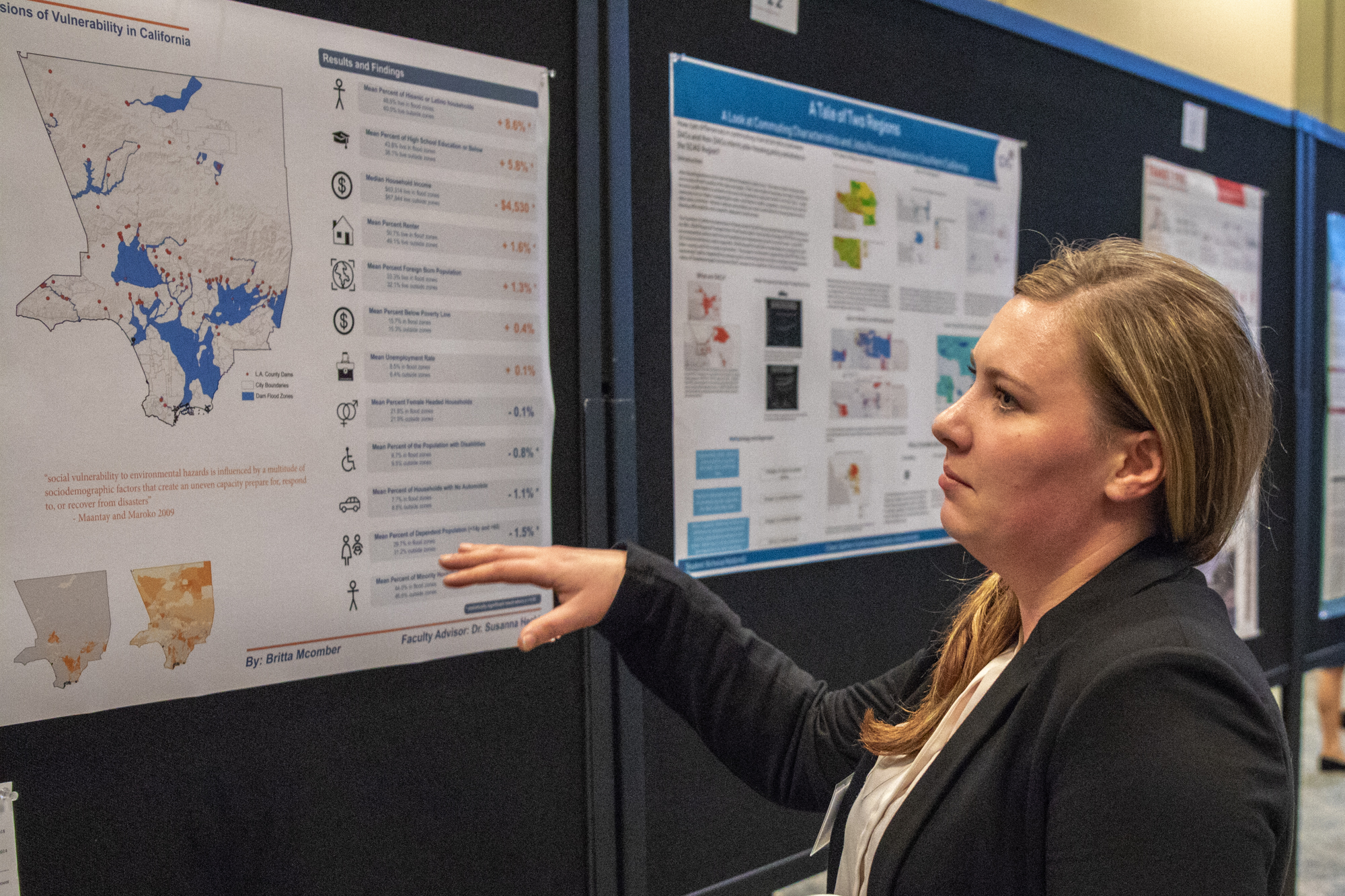
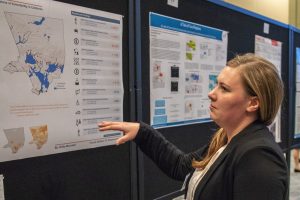
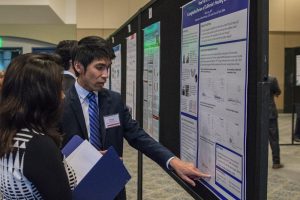
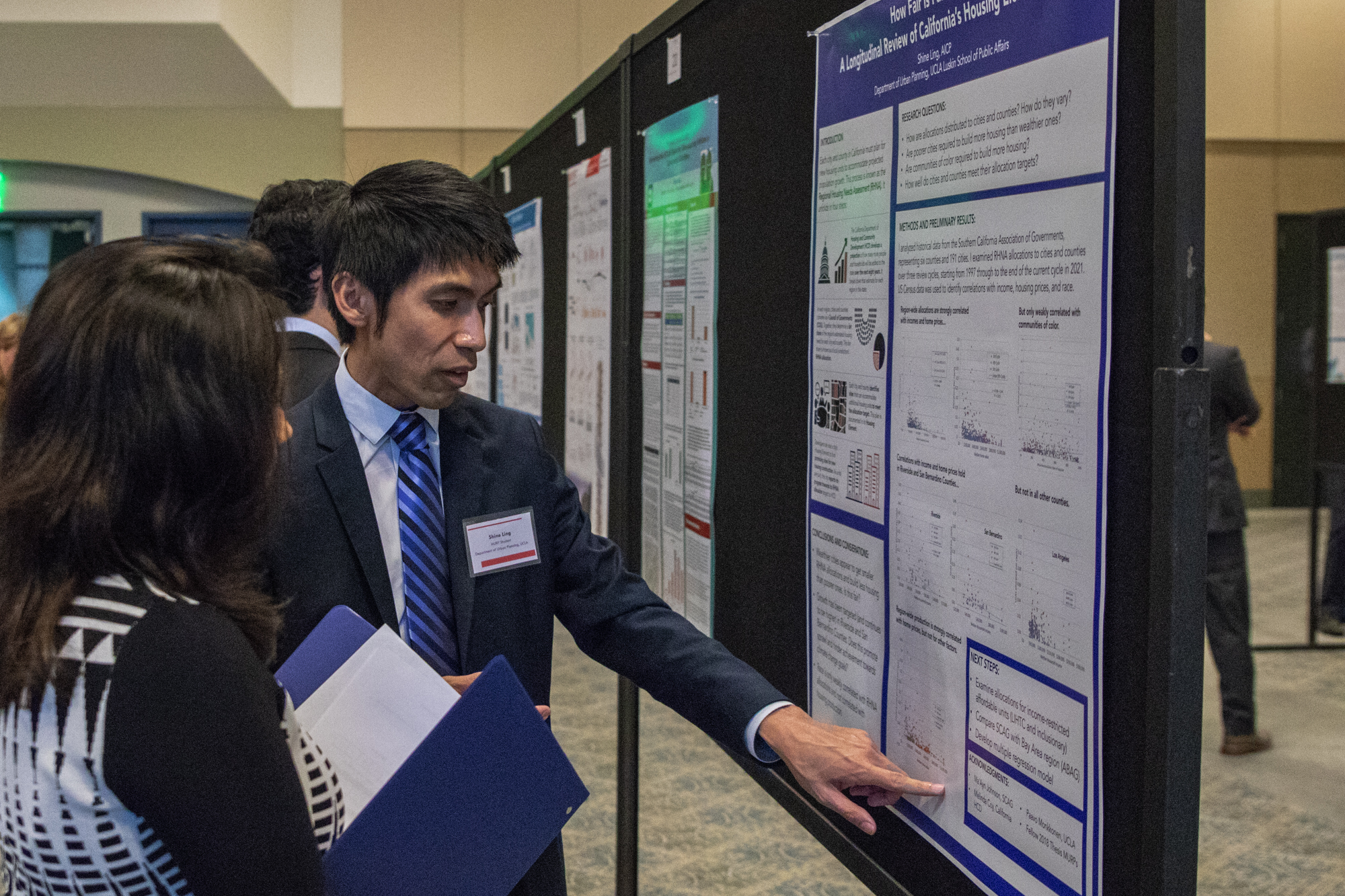
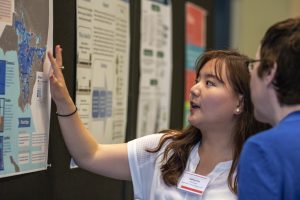
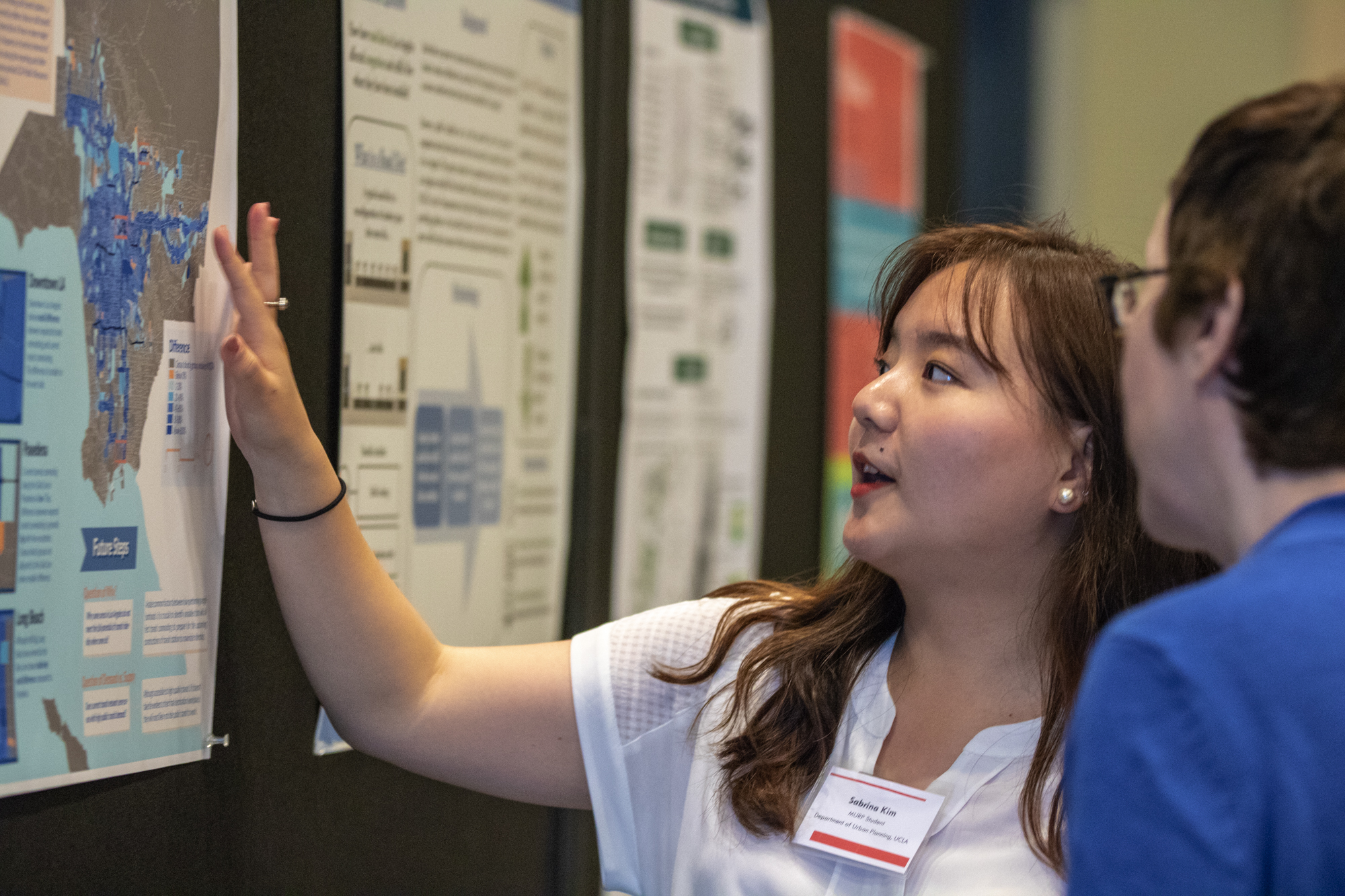
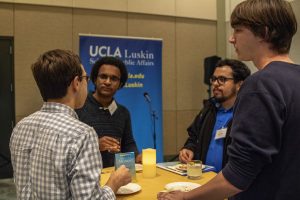
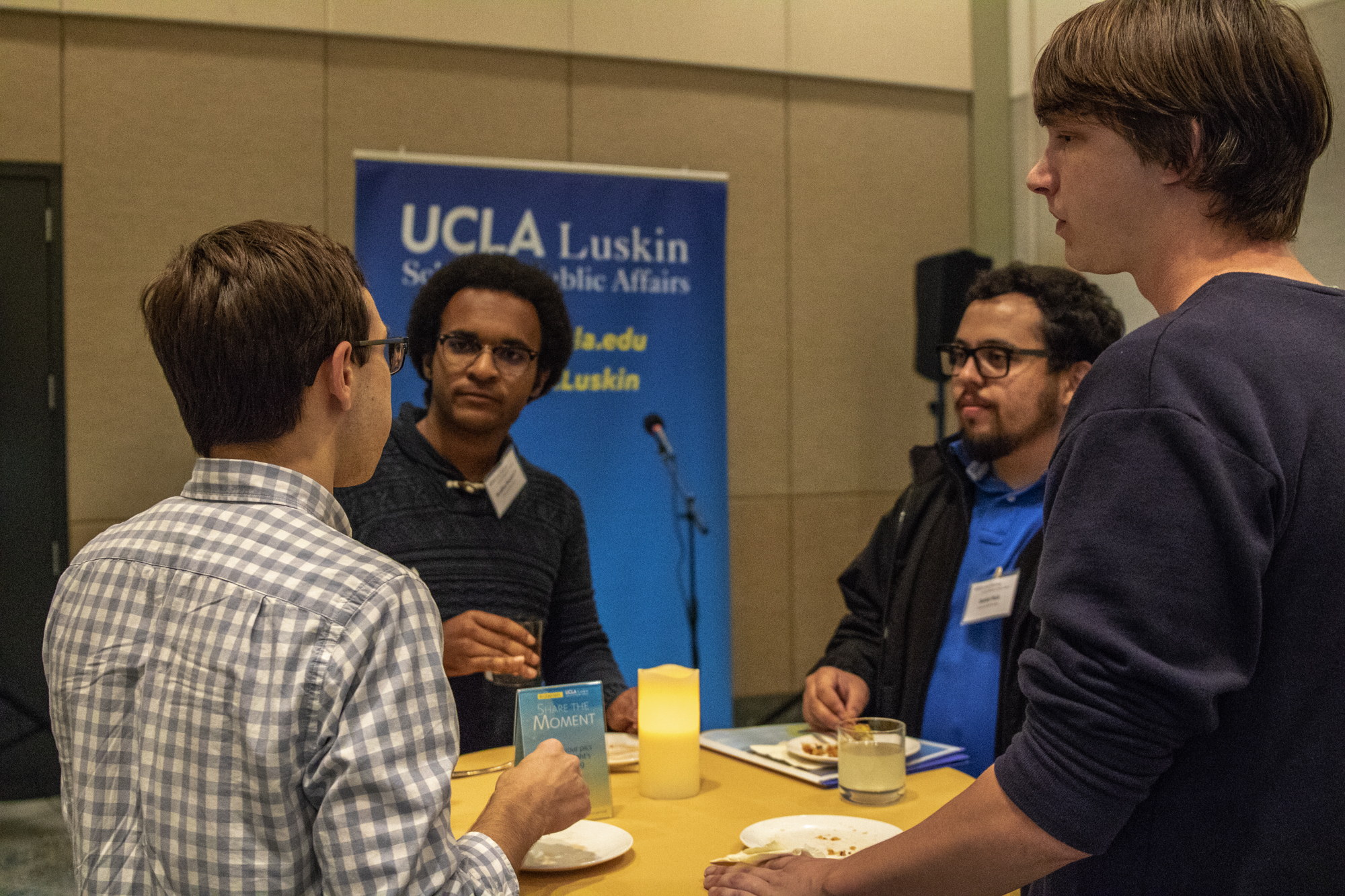
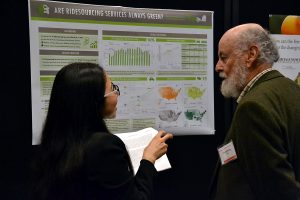
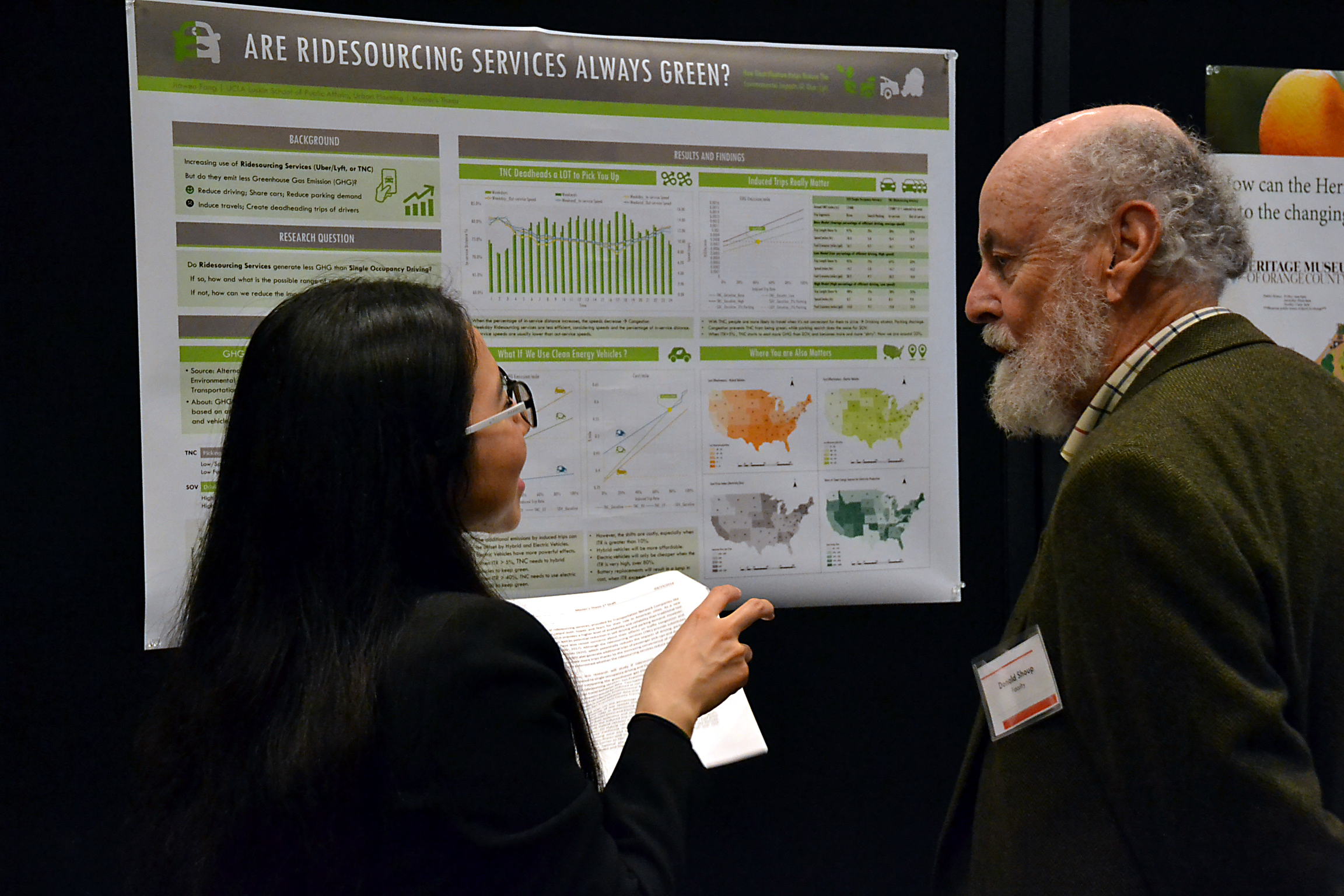
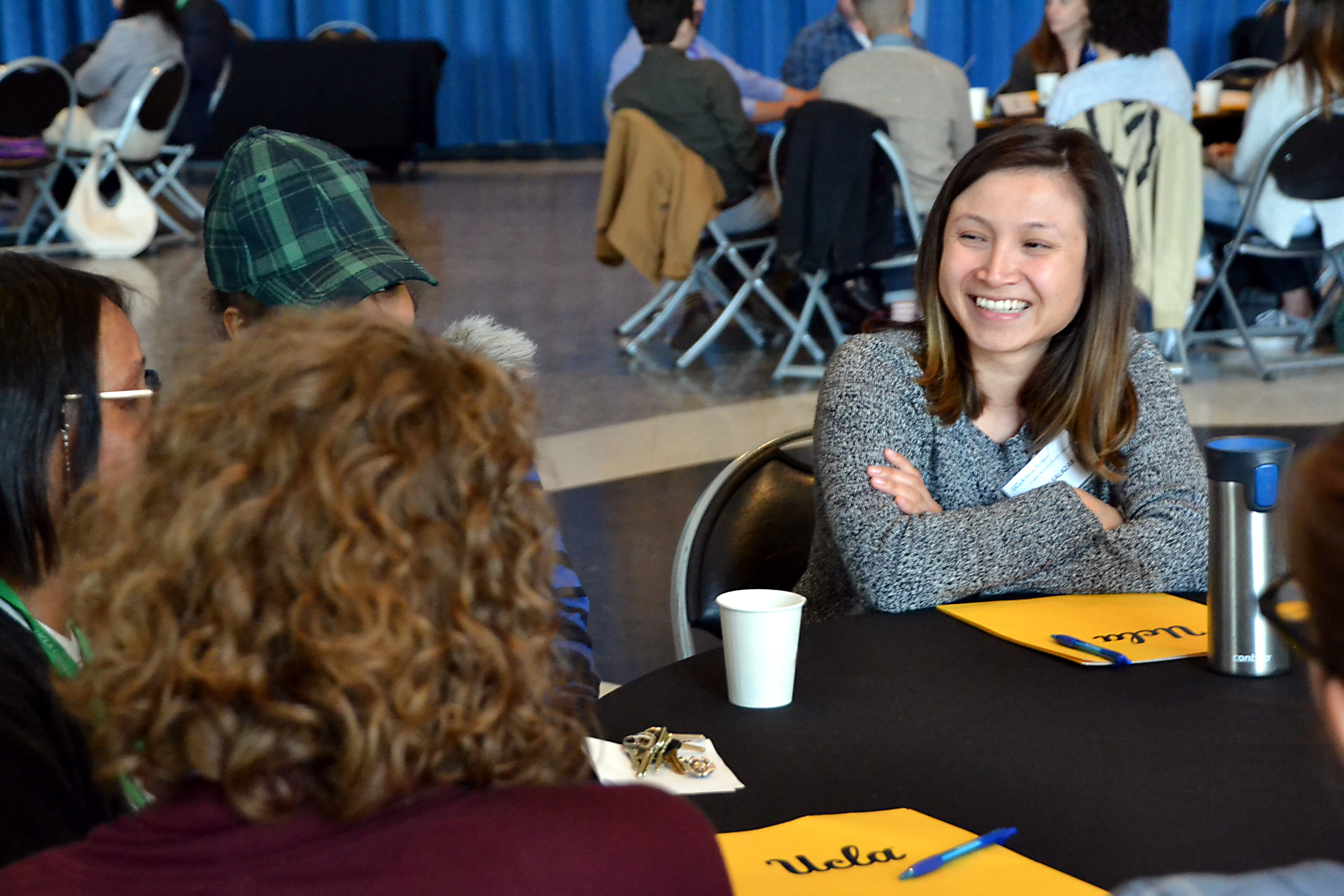
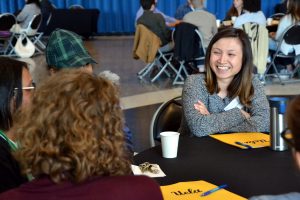
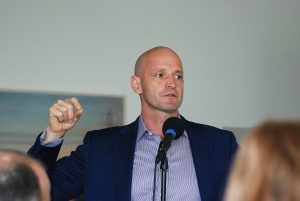
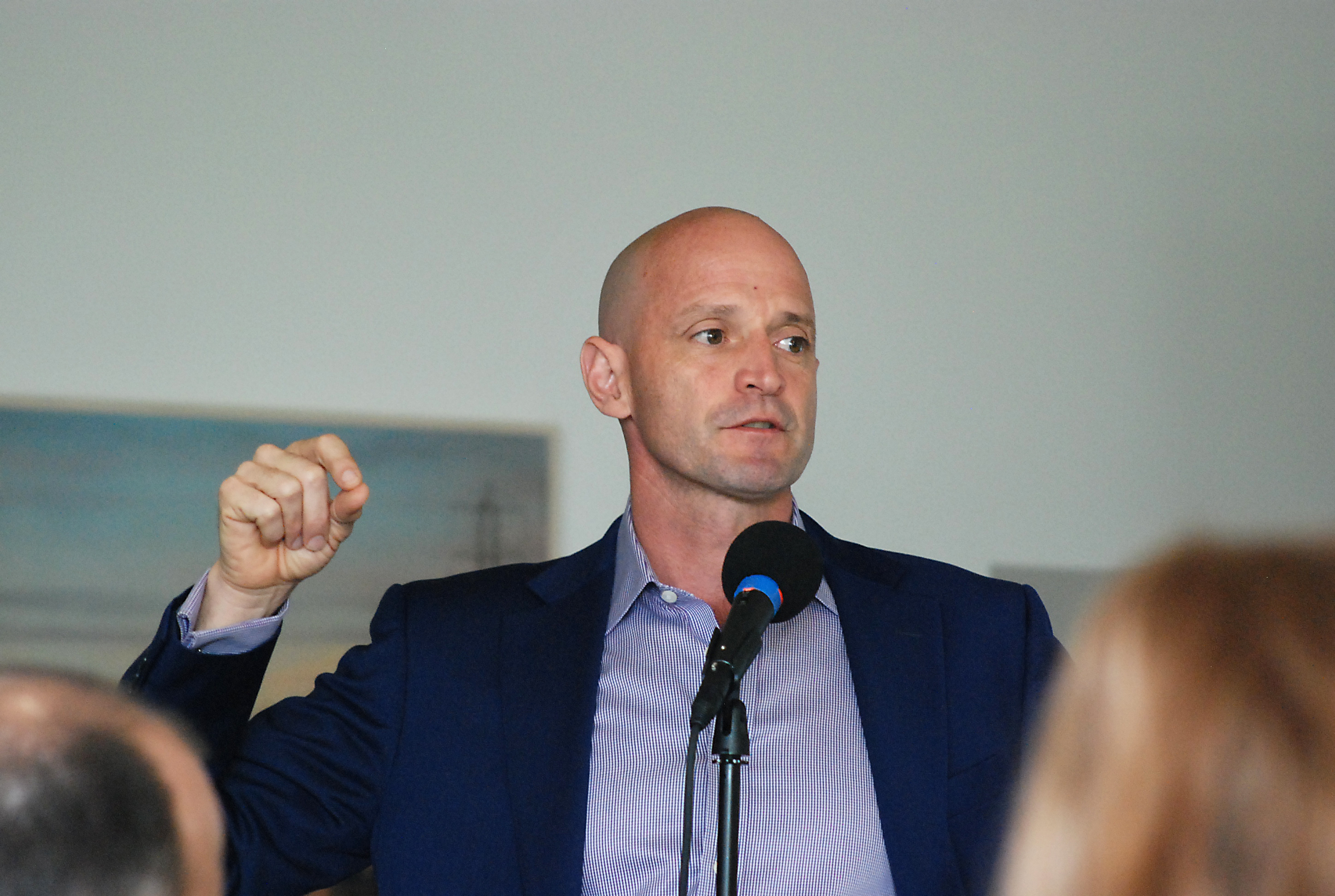
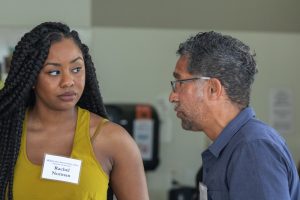
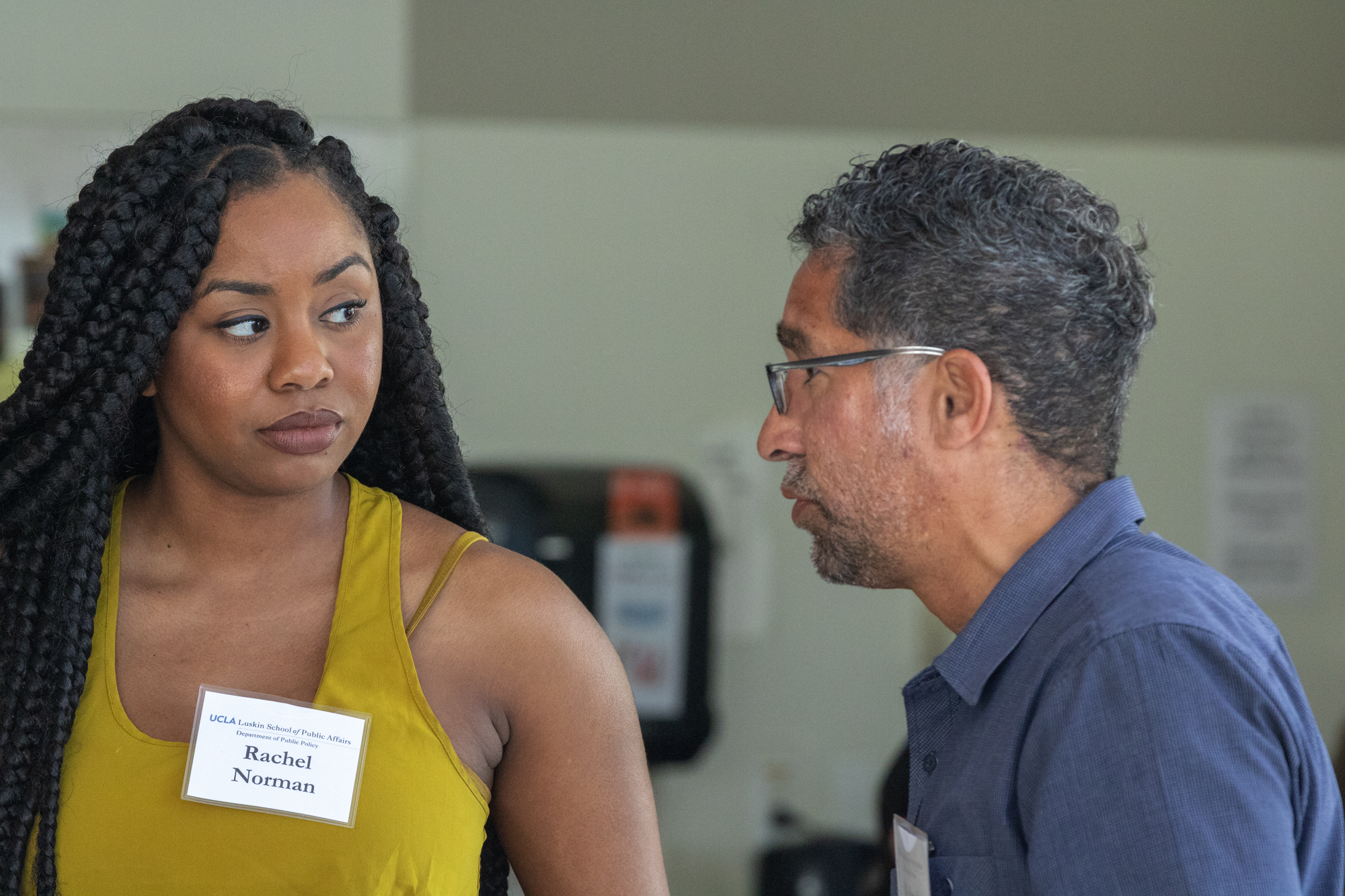
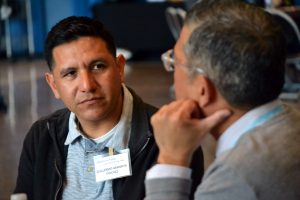
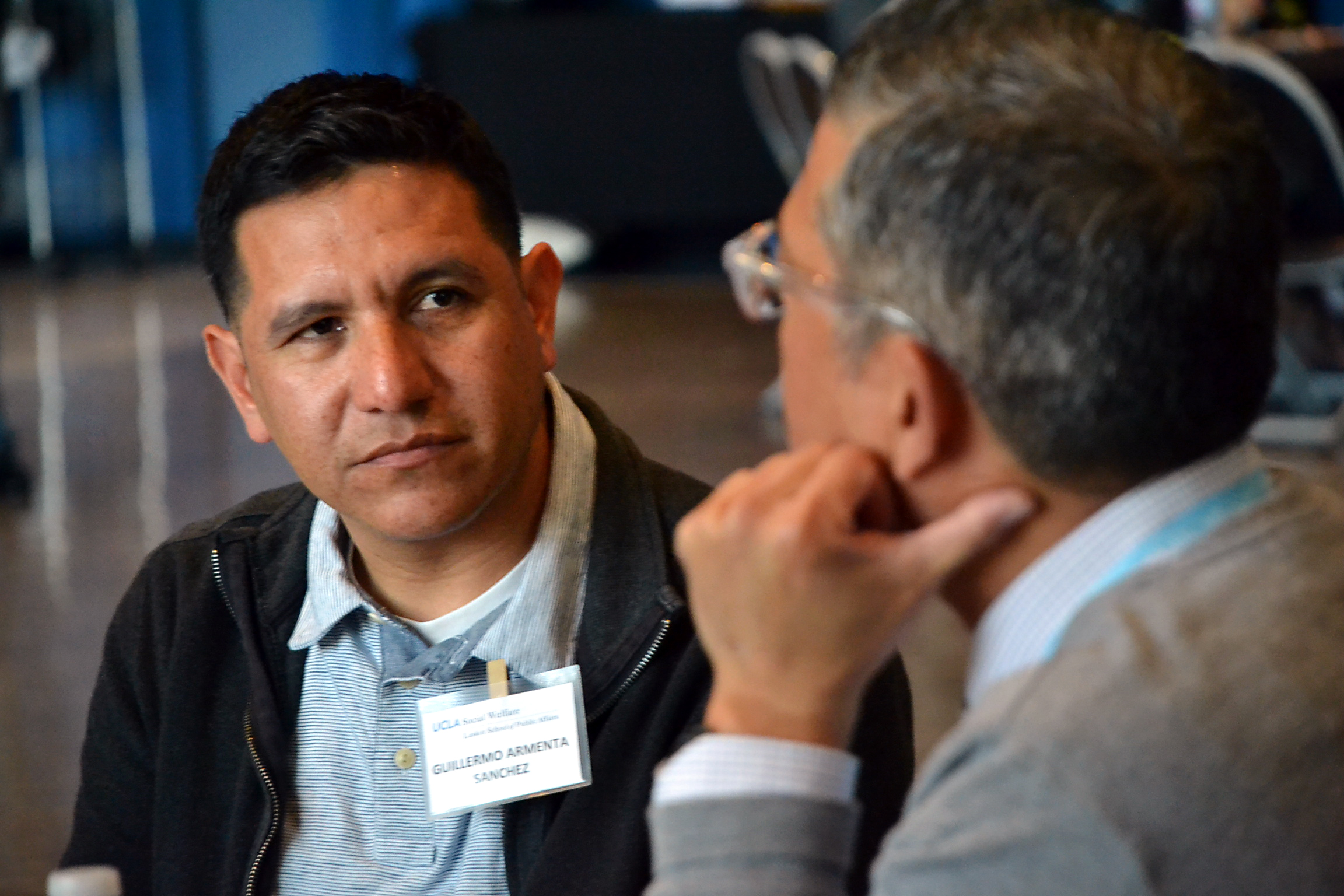
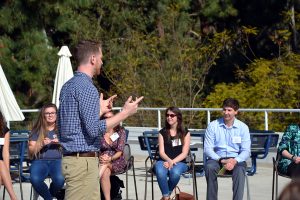
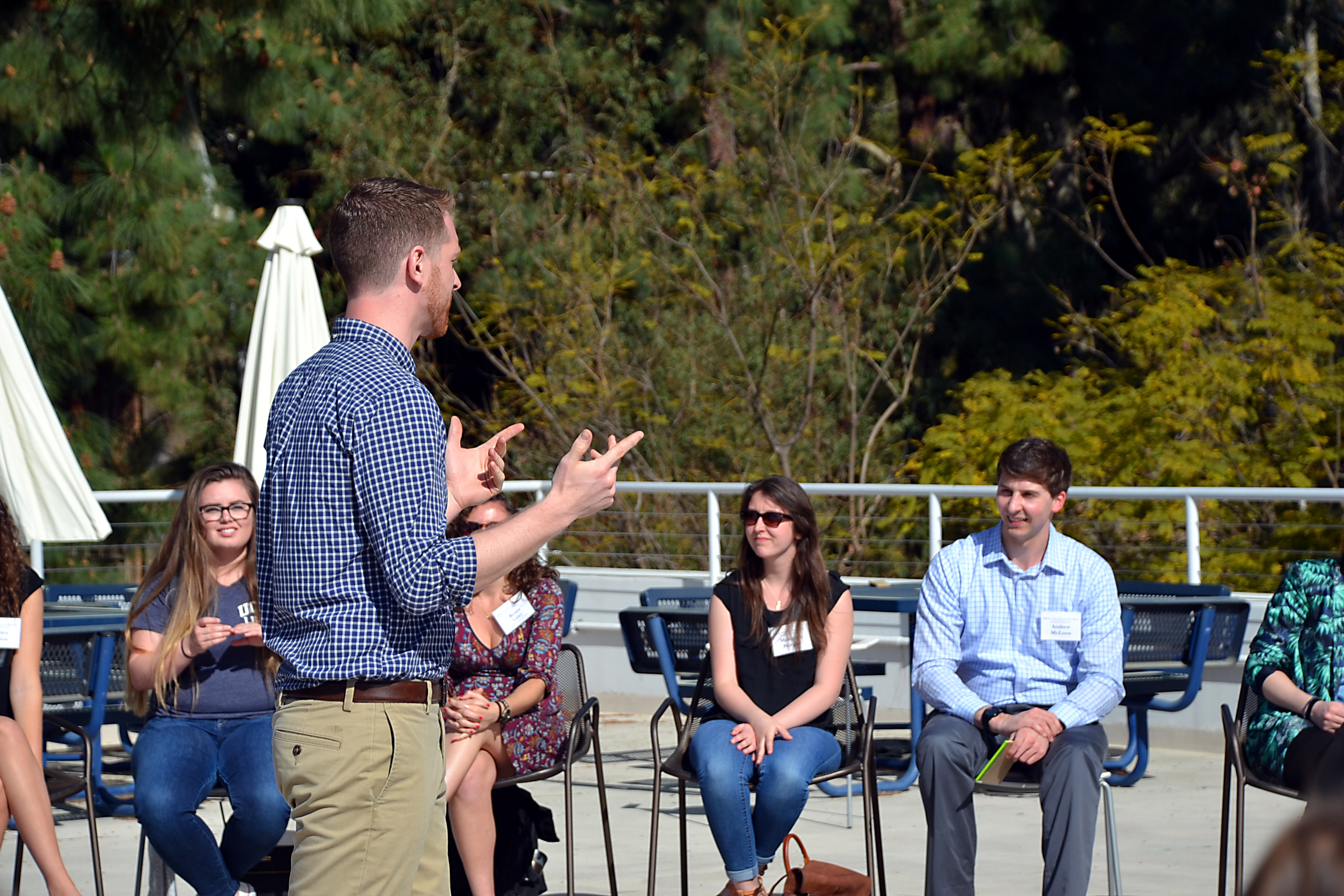
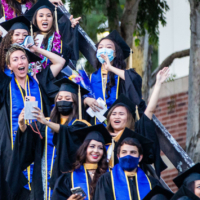

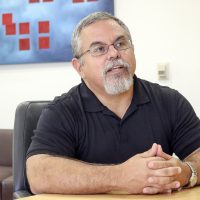

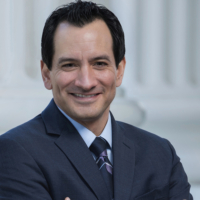
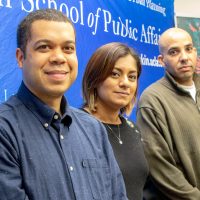


Leave a Reply
Want to join the discussion?Feel free to contribute!